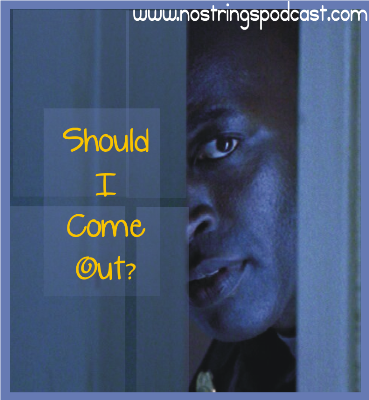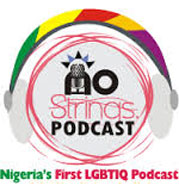Coming out in Nigeria: ‘Hate, isolation, loneliness may come’
Colin Stewart is a 45-year journalism veteran living in Southern…

Among trends that produce change, the process of coming out is one that can subtly persuade a society of the importance of recognizing the human rights of LGBTI people. When enough friends, colleagues, family members and celebrities come out, fear and hatred of LGBTI people tend to dissolve.
But for an individual, coming out can be risky, especially in an intensely homophobic country.
Mike Daemon, host of the Nigeria-based No Strings podcasts, highlights those risks in the podcasts’ latest episode, titled “Should I come out?”
“It’s a life-changing decision,” he says of coming out. But “how safe will you be when this decision is finally made?”
Some Nigerian parents have turned a son over to police after learning that he is gay, he says.
“I’m not saying that people should not come out,” he says. But “some LGBTIQ Nigerians have already made terrible mistakes by coming out to parents. … They suffer later.”
Among traditional family members, Daemon says:
“The first thing that comes to their mind is that you are lost, you’re a devil, it’s perversion, it’s not true, it can’t happen — not to them.
“For them, it’s a major problem. The shame gets transferred to them. …
“You must be prepared first for rejection, then dialogue; then acceptance may follow gradually. It takes time, but you must be ready for the worst and make sure you are truly ready for the horror that may follow … the hate, isolation, loneliness that may come from this action.”
Daemon’s suggestions in the podcast include:
- If you’re still young and not independent, don’t come out to your family. Wait until you’re fully independent and can take financial responsibility … and take care of yourself if they eventually reject you.
- Don’t come out to people you don’t really know or who talk negatively about homosexuality. … Make it your duty to really educate them, so they will be comfortable with it, before telling them anything whatsoever.
- If you are planning on coming out officially to the world in a homophobic country like Nigeria, plan strategically for escape. Get everything in place. Make the right connections and talk to the right people. But still there is no guarantee that it will ever be easy. … Asylum may be an option, but it’s very complicated. We’ll talk about this on a future podcast.
Finally, and optionally, you could talk to a professional psychologist about making that huge life-changing decision. If you need one would not judge but would offer real help, email info@nostringspodcast.com.

He adds, “If your life is in danger and you need help — not financial help, of course — legal help, counseling … get in touch with No Strings and we’ll get back to you in a short time.”
The No Strings podcasts, which can be streamed or downloaded, provide a voice for the LGBTIQ community in Nigeria; they are the first of their kind in Nigeria. They are presented in the form of a traditional radio program that chronicles the struggles, tells the stories, and reports on issues affecting the lives of LGBTIQ Nigerians.
The Erasing 76 Crimes blog helps to support distribution of the No Strings podcasts. For past and future podcasts, visit the No Strings website.
Related articles on this blog about No Strings podcasts:
- Gay Nigerian: ‘My mum is still very much devastated’ (Nov. 3, 2015)
- Focus of Nigerian podcast: Gains and pains of coming out (Oct. 21, 2015)
- ‘Veil of Silence’: When LGBTI Nigerians spoke out (Sept. 30, 2015)
- Behind the scenes: Filming a British-Nigerian gay love story (Sept. 9, 2015)
- Denial, prayer, fasting — growing up LGBTIQ in Nigeria (Aug. 27, 2015)
- A life in Nigeria: ‘Discovered, abandoned, depressed’ (Aug. 18, 2015)
- Podcast exposes attack on LGBTI Nigerians at hotel (Aug. 11, 2015)
- LGBTI depression — topic for latest Nigerian podcast (Aug. 1, 2015)
- Relationship problems: Topic of Nigerian LGBTIQ podcast (July 24, 2015)
- Nigeria: Why the West keeps its hands off (July 4, 2015)
- Nigerian film maker: ‘Yes! You can be an LGBTIQ Christian’ (June 22, 2015)
- Nigerian podcast: I was outed, jailed, bailed, shunned (June 15, 2015)
- Hate, gender non-conformity: Topics of Nigerian podcast (June 5, 2015)
- Nigerian podcast, website join fight against homophobia (May 22, 2015)



Reblogged this on Fairy JerBear's Queer/Trans News, Views & More From The City Different – Santa Fe, NM and commented:
The difficult question about when and if you should come out in an officially homophobic country.